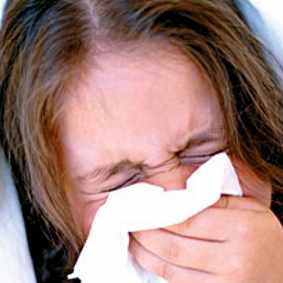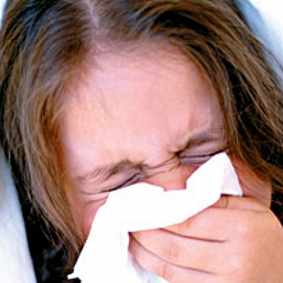
The best protection against the ‘flu’ is to get the seasonal ‘flu’ vaccination.
Influenza, commonly called ‘flu’, is a contagious illness caused by viruses that are spread from infected persons when they cough or sneeze. The ‘flu’ virus is also spread by touching something that has been soiled with the virus, then touching your eyes, mouth or nose. The virus can live on flat surfaces like tabletops for up to 8 hours. Health-care workers can be a source of transmission to patients and must give protection to persons at risk for complications from ‘flu’. The Centers for Disease Control (CDC) state that the most effective strategy for preventing seasonal ‘flu’ is by vaccination. The CDC strongly recommends the seasonal ‘flu’ vaccination for health-care workers.
Common ‘flu’ symptoms include:
- Fever
- Body aches
- Runny or stuffy nose
- Fatigue / tiredness
- Headache
- Diarrhea and vomiting (common in children)
- Sore throat
- Cough
Seasonal ‘flu’ can cause mild to severe illness. Most healthy people will recover from the illness without complications. Complications that include a severe respiratory illness called pneumonia, dehydration, worsening of a person’s current health conditions including congestive heart failure, asthma or diabetes, sinus problems and ear infections. Adults can infect others one day before the symptoms start and continue for up to five days after becoming ill. It is possible to give someone the ‘flu’ before your symptoms appear and while you are ill.
People who are at high risk of complications from seasonal ‘flu’ include:
- People 65 years or older
- Pregnant women
- People with chronic medical conditions, like asthma, diabetes or heart disease
- Young children
Steps that you can take to prevent the spread of the ‘flu’ include:
- Avoid close contact with people who are sick
- Stay home from work, school & do not run errands when you are sick.
- Cover your mouth and nose with a tissue when coughing or sneezing, if a tissue is not available cover your nose and mouth while you cough or sneeze by placing the inside of your elbow up to your face to prevent spread of the virus.
- Wash your hands often, use wipes or hand gels that prevent the spread of illness after proper disposal of used tissues & after touching flat surfaces like tabletops that are potentially infected with the virus.
Get emergency care if you have the following symptoms:
In Children:
- Fast breathing / trouble breathing
- Bluish skin color
- Not drinking enough fluids
- Not waking up / interacting
- Irritability
- Fever with rash
- ‘Flu’ symptoms improve then worsen
In Adults:
- Difficulty breathing / shortness of breath
- Chest / abdominal pain or pressure
- Dizziness
- Confusion
- Severe or persistent vomiting

Be the first to comment